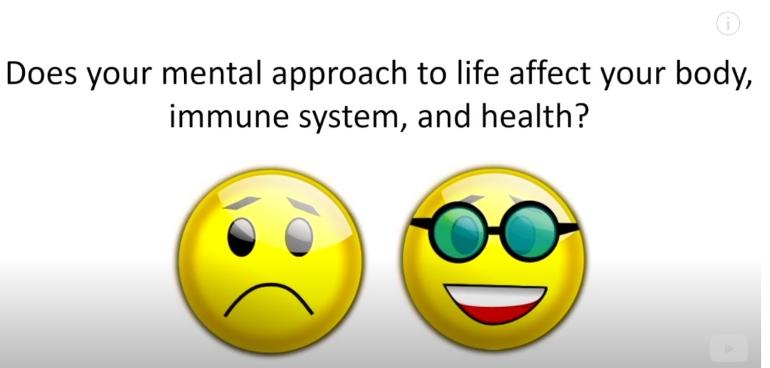Dr Roger Sehuelt, MD of MEDCRAM explains why thankfulness and forgiveness is essential for health optimization. His science-based report contains evidence that being thankful, forgiving and always being grateful yields positive health benefits.
MIN 2:21; American Journal of epidemiology, optimism and cause specific mortality: a prospective cohort study.
-70,021 nurses were followed from 2006 to 2012.
-Women in the highest quartile w optimistic behavior had a hazard ratio of 0.71 for all cause mortality.
MIN 4:33; Article psychotherapy research, does gratitude writing improve mental health evidence from randomized controlled trials.
-Study of 293 adults seeking individual psychotherapy counseling.
-The control group was psychotherapy only. The other randomized groups were expressive writing about the stress experience and gratitude writing about how one feels in life.
-The gratitude writing members outperformed the other two randomized groups. After 12 weeks on a general mental health (GMH) index score of 0 to 4 reached a high of 2.99.
-Three months after the start of the experiment the gratitude letter writers had more activity in the pre-frontal cortex as measured by fMRI. This is an area of the brain where learning and the executive function occurs.
MIN 10:34; study NIH, Positive psychological well-being and cardiovascular disease, JACC.
-This was a study of 893,850 participants that were followed up to 37 years.
-The finding was that depression consistently predicted excess risk of developing cardiovascular disease.
-Meta-analysis of 6139 patients in 39 randomized trials found that positive psychological interventions were associated with significant well-being and reduce depression with effects sustain for up to six months.
MIN 14:44; Forgiveness empathy and understanding.
-Defining what it means and what it does not mean.
- If practiced and if interventions constrain negative thoughts then this will lead to reduce anxiety, depression, major disorders, fewer health systems and lower mortality.
MIN 16:24; study NIH, Forgiveness stress and health: a 5 week dynamic study.
- Primary end goal was that increases in levels of forgiveness are associated with decreases of stress which in turn decrease mental and physical health symptoms.
-332 adults participated in a five week study and reported on their levels of forgiveness, stress and physical health.
-The study was the first to provide prospective evidence showing that forgiveness is associated with reduced stress and better mental health. Cultivating forgiveness may have beneficial effects on health.
MIN 19-17; JACC, The association of anger and hostility with future heart disease: a meta-analytic review of evidence.
- 44 studies were identified and looked at the effects of anger and hostility on heart disease in both a healthy and heart unhealthy population.
-The hazard ratio for heart disease in the healthy population that expressed anger and hostility was 1.19. They were 20% more likely to have heart disease events than those who were otherwise healthy but did not express anger and hostility.
-In the unhealthy heart population of those who expressed anger and hostility the hazard ratio was 1.24, meaning they were at least as likely and slightly more probable to have heart disease.
-Cardio vascular heart disease events in the healthy population was greater in men than women.
MIN 22:28; study American Journal of Public health, Is forgiveness a public health issue.
-The study focuses on whether constraining or thoughts has impacts on public health by improving our individual outcomes.
-It appears that disciplining how we think has an impact on ourselves which then spills over into the public space that we occupy.
